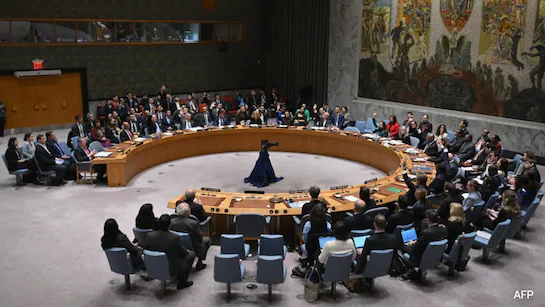GNCAP urges corporates to opt for 5-star rated vehicles

NEW DELHI: The Global New Car Assessment Programme (GNCAP) has made a strong appeal to corporate fleet owners and mobility operators to prioritize 5-star rated vehicles when building or upgrading their fleets. The recommendation was made during the Vehicle and Fleet Safety Workshop held in collaboration with the Institute for Road Traffic Education (IRTE) from April 24–25 at the College of Traffic Management in Faridabad, NCR Delhi.
The workshop focused on equipping corporate decision-makers and policy influencers with actionable insights to improve road safety through better vehicle choices.
“Work-related crashes account for a third of global road deaths, making driving one of the most significant risks faced by employees,” said David Ward, President Emeritus of GNCAP. “We’ve updated our FleetSafe guide to help fleet managers make informed vehicle selections aligned with the latest international safety recommendations.”
5-Star Ratings: A Benchmark for Corporate Responsibility
Ward emphasized that adopting GNCAP’s five-star safety rating system offers corporates a tangible way to fulfill their duty of care, lower road crash-related costs, and uphold Corporate Social Responsibility (CSR) commitments.
“Safer vehicle procurement not only protects employees but also contributes to broader public safety and economic resilience,” he noted.
Two-Wheeler Safety in Focus
In addition to passenger vehicles, GNCAP drew urgent attention to the safety of two-wheelers, which account for 44% of road fatalities in India. Ward stressed the need for Anti-lock Braking Systems (ABS), blind spot detection, and improved helmet standards to enhance safety for riders.
“Over 1.1 billion two-wheelers are sold globally, and India must lead in upgrading safety norms. While ABS is mandatory for bikes above 125cc in India, GNCAP recommends mandating ABS for all two-wheelers above 50cc,” said Ward.
He added that India, already a global leader in ABS standards, could further its impact by expanding the mandate to include lower-capacity vehicles. Such interventions, he said, could significantly curb fatalities and injuries on Indian roads.
Ward concluded by stating, “Technological solutions like ABS, safer vehicle designs, and data-driven procurement can no longer be optional—they must be central to our global road safety strategy.”











